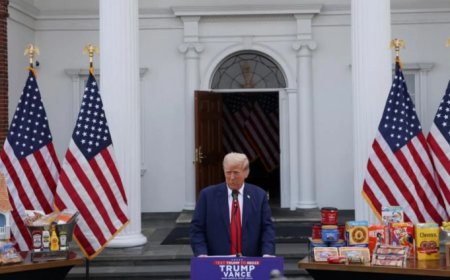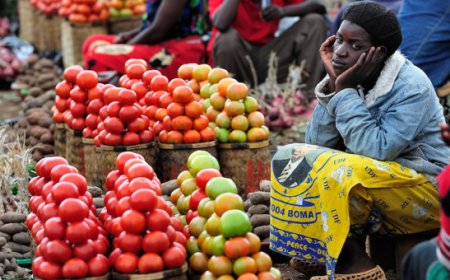Increase investment in smallholder farmers - Dr Afriyie Akoto tells govt
Making a case for smallholder farmers, he said they were the driving force behind the sustainability of the country’s food security and nutrition.

In the face of global uncertainties and looming crises, Dr. Akoto's advocacy for smallholder farmers as the linchpin of Ghana's food security and economic prosperity is both timely and imperative. Smallholder farmers, often overlooked yet undeniably crucial, form the backbone of the nation's agricultural landscape, accounting for a substantial 90 percent of the country's agricultural output.
Investing in smallholder farmers isn't merely about ensuring food security; it's about laying the groundwork for sustainable development and resilience in the face of multifaceted challenges. By directing resources and attention towards these farmers, governments can catalyze a ripple effect of positive change, amplifying food production, creating employment opportunities, and bolstering economic growth.
Moreover, amidst the backdrop of rising global tensions and conflicts, the imperative for self-reliance in food production becomes increasingly evident. Dr. Akoto's assertion that "we can only look within for food sufficiency in the medium to long term" underscores the urgency of prioritizing domestic agricultural capacity. In a world fraught with geopolitical uncertainties and supply chain disruptions, investing in smallholder farmers offers a pathway to not only safeguarding food security but also fostering national resilience and sovereignty.
The convergence of a youthful population and increasing levels of consumption presents a unique opportunity for Ghana's agricultural sector. By harnessing the potential of smallholder farmers, Ghana can translate this demographic dividend into tangible advantages that stimulate local food production, drive economic growth, and enhance overall prosperity. The symbiotic relationship between youth consumption patterns and agricultural productivity underscores the pivotal role of smallholder farmers in shaping the nation's economic trajectory.
Furthermore, the global recognition of the importance of smallholder farmers by organizations such as the Food and Agriculture Organization (FAO) underscores the urgency of action. Despite their indispensable contributions to global food production, smallholder farmers remain disproportionately underserved, receiving a meager 0.3 percent of global climate funding. Addressing this disparity through increased investment is not only a moral imperative but a strategic necessity in realizing a more equitable and sustainable future.
In essence, prioritizing increased investments in smallholder farmers isn't just a matter of agricultural policy—it's a strategic imperative for national development and resilience. As Ghana navigates the complexities of a rapidly changing global landscape, embracing the potential of smallholder farmers is paramount to securing a prosperous and resilient future for generations to come.
What's Your Reaction?






































































